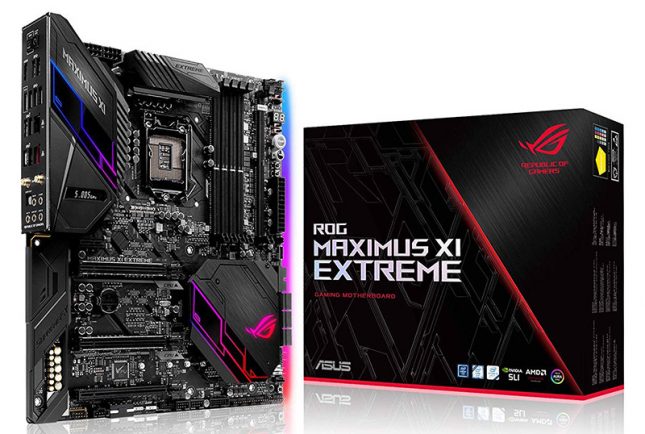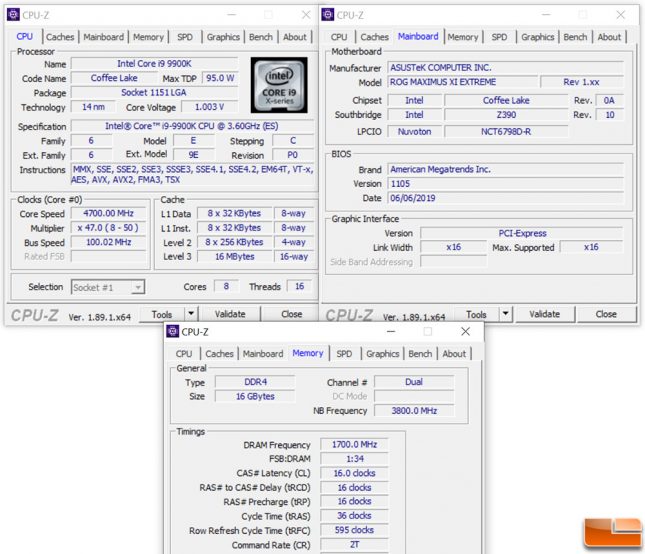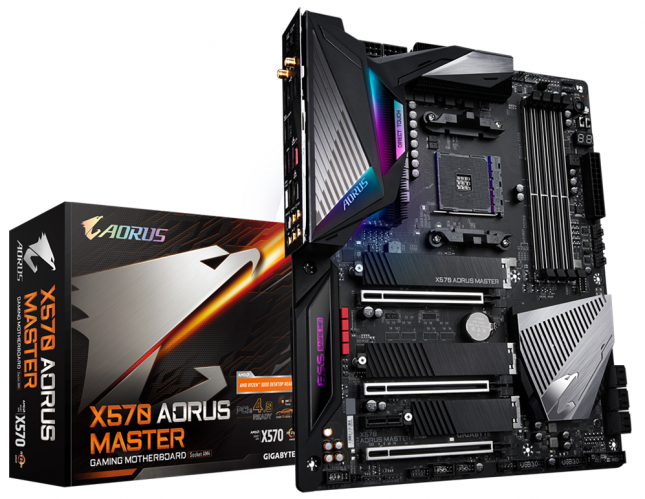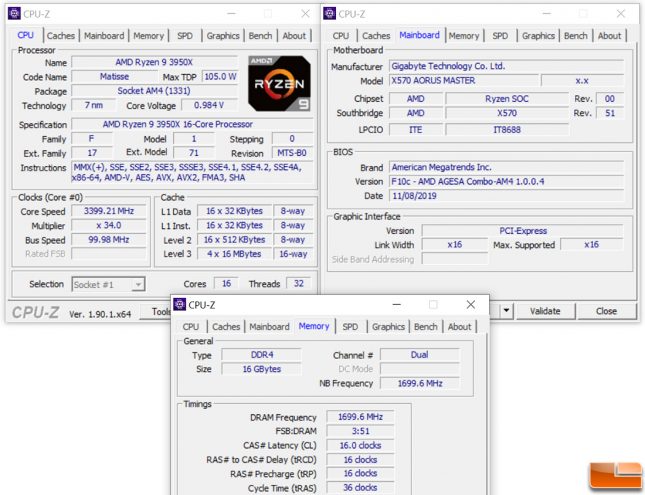AMD Ryzen XT Processor Review – 3600XT, 3800XT, 3900XT
The Intel and AMD Test Systems
Before we look at the numbers, lets take a brief look at the test system that was used as we switched over to a new system for this review. All testing was done using a fresh install of Windows 10 Pro 64-bit version 1903 and benchmarks were completed on the desktop with no other software programs running.
Intel Z390 Test Platform
The Intel Z390 platform that we used to test the all of the video cards was running the ASUS ROG Maximus XI Extreme Z390 Gaming Motherboard with BIOS 1105 that came out in June 21st, 2019. The G.Skill DDR4 memory kit we used was a 16GB kit (2x8GB) and while it is rated at 3400MHz and it was run at XMP settings. The Samsung SSD 970 EVO 1TB M.2 PCIe NVMe SSD was run with latest firmware available. A Corsair RM1000x power supply provides clean power to the system and is also silent as the fan hardly ever spins up.
We want to make it crystal clear that we had ASUS MultiCore Enhancement (MCE) disabled for each processor in the UEFI of the ASUS ROG MAXIMUS XI EXTREME motherboard. Each and every time we switched processors we went into the UEFI loaded the boards optimized defaults, enabled XMP memory for 3400MHz and then disabled MCE. When you disable MCE the board enforces all of the CPU limits imposed by Intel.
MCE is basically overclocking, so if you are going to compare numbers from our review to other sites this is something you need to be aware of. For example the Intel Core i9-9900K processor on our test system scores ~4,900 points on Cinebench R20 on ‘Auto’ for MCE. If you disable MCE that score drops down to ~4,350 points. This means MCE boosted performance by 13% since it allows for running higher core clocks. Some sites flat out don’t report what build of Windows 10 they are running let alone if they are testing with MCE off or on. If you look super close at some sites you’ll notice the scores in their CPU charts are identical to those from over a year ago. They are mixing different Windows versions, driver versions and UEFI settings and publishing worthless numbers.
Here are the exact hardware components that we are using on our test system:
| The Intel Z390 Test Platform | |||||
|---|---|---|---|---|---|
|
Component |
Brand/Model |
Live Pricing |
|||
| Processor | Intel Core i9-9900K | ||||
| Motherboard |
ASUS ROG Maximus XI Extreme
|
||||
| Memory |
16GB G.Skill 3400MHz DDR4
|
||||
| Video Card | Various | ||||
| Solid-State Drive | Samsung SSD 970 EVO 1TB | ||||
| Cooling | Corsair Hydro H115i | ||||
| Power Supply | Corsair RM1000x | ||||
| Case | HighSpeed PC Top Deck Tech Station | ||||
| Operating System | Windows 10 64-bit | ||||
| Monitor | Acer Predator X27 4K HDR | ||||
AMD AM4 Test Platform
The IAMD AM4 platform that we used to test all of the video cards was using the Gigabyte X570 AORUS Master Motherboard with BIOS F10c. The G.Skill DDR4 memory kit we used was a 16GB kit (2x8GB) and while it is rated at 3400MHz and it was run at XMP settings. The Samsung SSD 970 EVO 1TB M.2 PCIe NVMe SSD was run with latest firmware available. A Corsair RM1000x power supply provides clean power to the system and is also silent as the fan hardly ever spins up.
Here are the CPU-Z settings for that system:
Here are the exact hardware components that we are using on our test system:
| The AMD AM4 Test Platform | |||||
|---|---|---|---|---|---|
|
Component |
Brand/Model |
Live Pricing |
|||
| Processor | AMD Various | ||||
| Motherboard | Gigabyte AORUS X570 Master | ||||
| Memory |
16GB G.Skill 3400MHz DDR4
|
||||
| Video Card | Various | ||||
| Solid-State Drive | Samsung SSD 970 EVO 1TB | ||||
| Cooling | Corsair Hydro H115i | ||||
| Power Supply | Corsair RM1000x | ||||
| Case | HighSpeed PC Top Deck Tech Station | ||||
| Operating System | Windows 10 64-bit | ||||
| Monitor | Acer Predator X27 4K HDR | ||||
Let’s check out the benchmarks!





